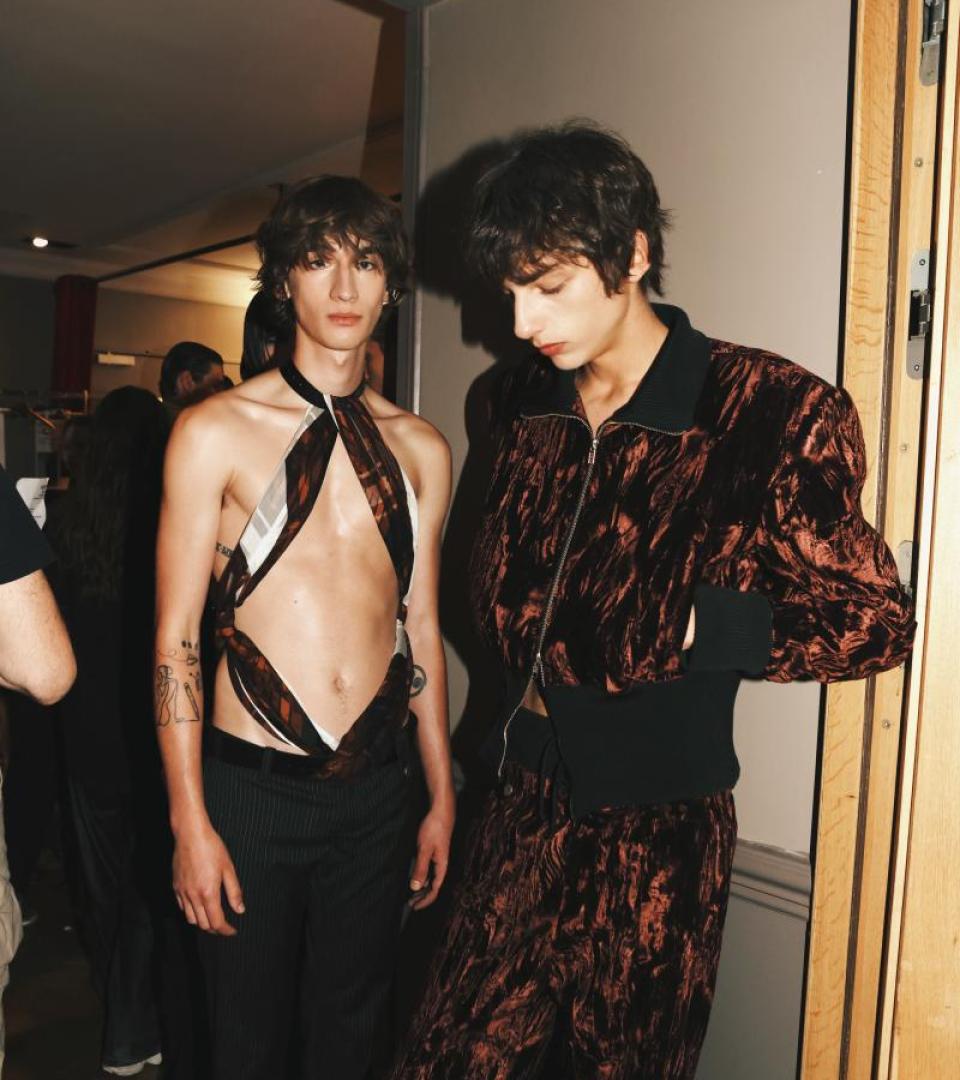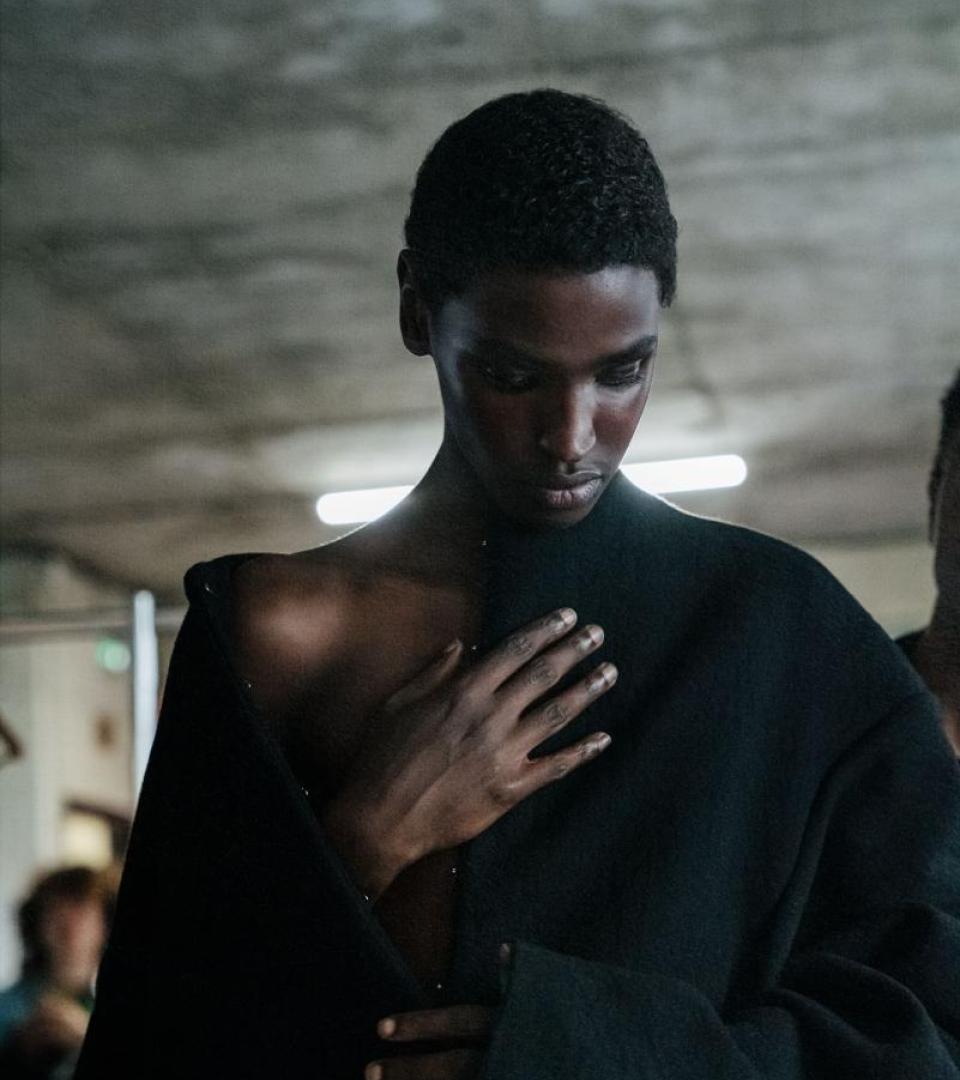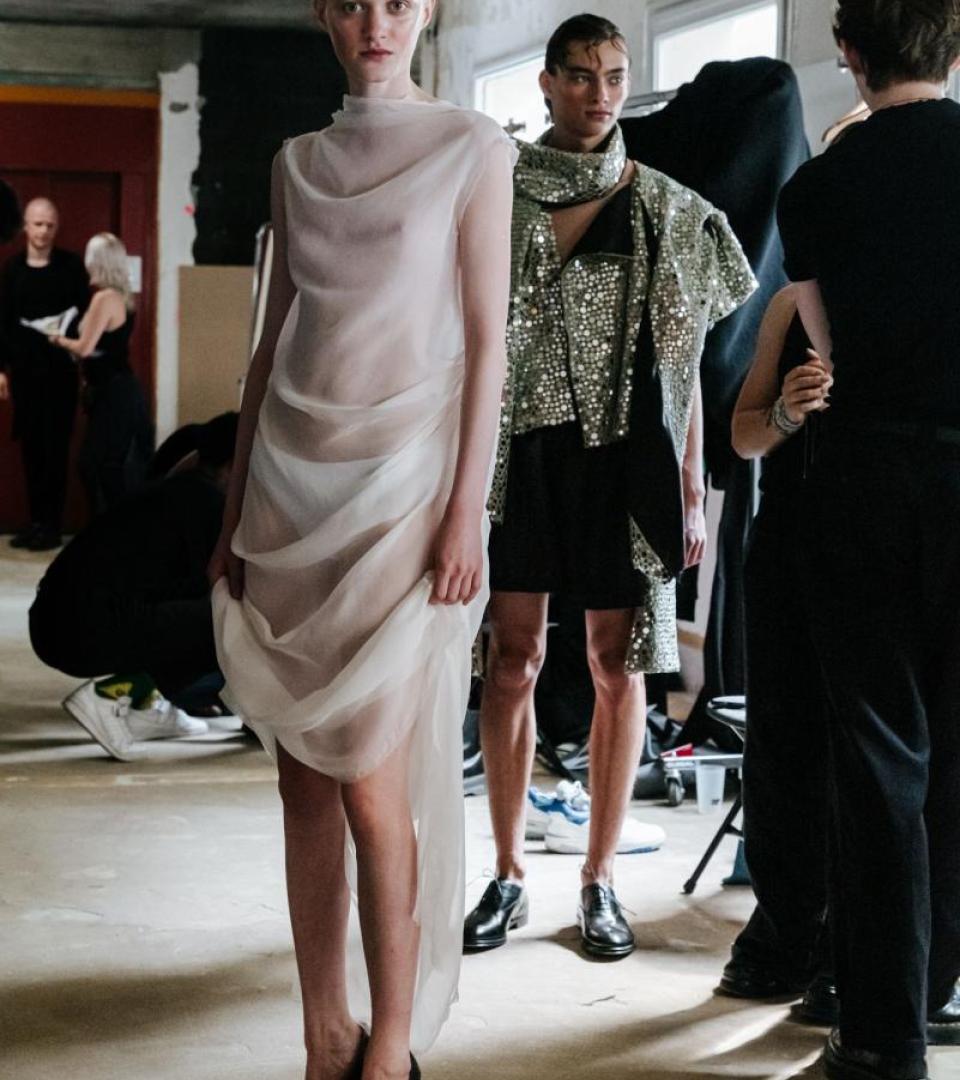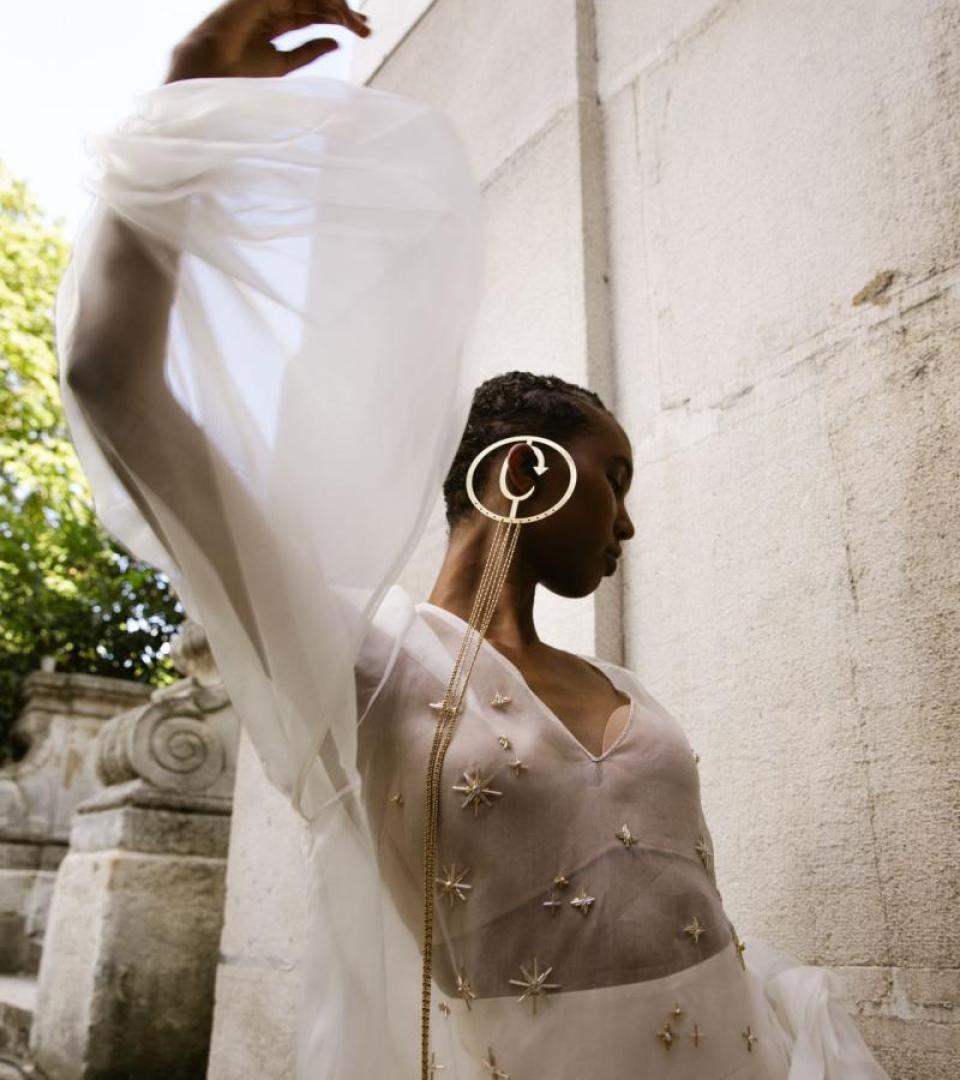IFM students invest in the metaverse
The metaverse is at the heart of the Institut Français de la Mode’s Master of Arts graduate show at the opening of Paris Fashion Week®, thanks to a unique collaboration between fashion accessory design students and Stage 11, a company specialized in the development of immersive virtual reality experiences.
Stage 11 is a Paris-based start-up specializing in the musical metaverse, with half of the founding team coming from the music industry, the other half linked to the world of luxury and fashion events. Given the importance of visual components in today’s music, it’s impossible to ignore how intertwined the fashion and music industries are. “Both purely digital fashion as well as digital/physical hybrids have a strong place in our worlds”, emphasizes Olivier Ozoux, Chief Technology Officer (CTO) of Stage 11, who came several times to IFM to discuss the challenges of the metaverse with students. This, he says, is in line with current concerns for a more sustainable fashion, which “will ultimately force a large part of the design and creation process to be fully digital”, as well as accelerate “nascent opportunities for fully digital fashion for the metaverse and other digital worlds that would never have a physical equivalent at all”.

Under the artistic direction of director Antoine Asseraf, a room at the IFM has been transformed into a space that is sometimes lunar, sometimes tropical, sometimes post-apocalyptic, to serve as a fantastic setting for the students’ imagination. They present purely virtual accessories but also real accessories that have been scanned.
This artistic experience is above all educational: it is about allowing students to add a technological brick to their skills, to familiarize them with the most advanced digital tools in collaboration with the digital artisans of Stage 11, who play here the same role as the luxury artisans of 19M (Chanel) or the Italian leather craftsmen with whom the students of the IFM’s Master of Arts regularly work.

Beyond the now classic 3D visualization software such as Rhino (used daily by IFM design students), the aim was to introduce students to creation and virtualization tools and approaches from the world of real-time computer graphics, whose origins are rooted in gaming, simulation, virtual and mixed reality, and now metaverse. One such tool is Epic’s Unreal Engine, a game engine that served as the platform for building the Stage 11 metaverse. This engine is used by some of the most popular games in the world, from Fortnite to Mass Effect, Bioshock and many more.
Throughout the last few months and thanks to this collaboration with Stage 11, IFM’s MA prop students have been asked to think differently about how they approach object design: “it’s not about transposing the real object into a virtual one, but about expressing a renewed vision of the accessory, free from any kind of material or cost constraints, to develop a 3D concept that you couldn’t elaborate in reality. Your proposals don’t have to be functional, realistic or ergonomic, they have to push the boundaries of design beyond your usual creative practices”, says Leyla Neri, MA Director. The advantage of this experience is that the students can free themselves from the usual heavy constraints of prototyping, while being introduced to completely new design methods.

Here are some testimonies from students of the MA of the IFM who were able to work with Stage 11: “I wanted to express the soul of an object through this digital object (…). What I like about creating virtual objects is that all the boundaries explode and we can be free without technical constraints (…) With virtual objects, we can be free in terms of materials, structures, shapes and colors we use. This offers new possibilities to develop our creative identity”.
Later on, there may be a question of commercializing the students’ creations, in the form of NFTs (digital certificates).



